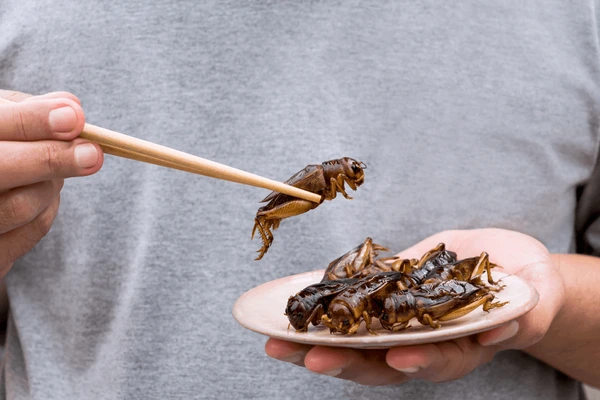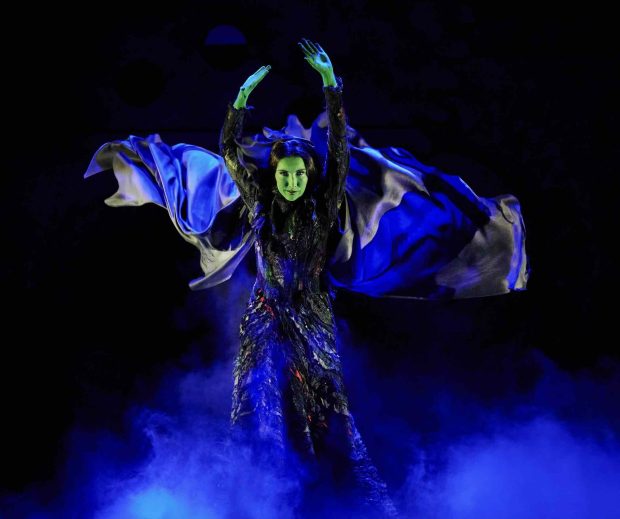Singapore has recently approved 16 insect species for human consumption, marking a significant step in sustainable and innovative dining. As global food security and environmental concerns grow, edible insects provide a nutrient-rich, environmentally friendly alternative. Here are the 16 Singapore Edible Insects. Let’s check out where we can bite Into This Culinary Trend
Singapore Edible Insects – Approved Insects for Consumption
- House Crickets (Acheta domesticus)
- Field Crickets (Gryllus bimaculatus)
- Black Soldier Fly Larvae (Hermetia illucens)
- Yellow Mealworms (Tenebrio molitor)
- Superworms (Zophobas morio)
- Buffalo Worms (Alphitobius diaperinus)
- Housefly Maggots (Musca domestica)
- Silkworms (Bombyx mori)
- Grasshoppers (Orthoptera)
- Locusts (Schistocerca gregaria)
- Leafcutter Ants (Atta laevigata)
- Weaver Ants (Oecophylla smaragdina)
- Asian Weaver Ants (Oecophylla longinoda)
- Giant Water Bugs (Lethocerus indicus)
- Lesser Wax Moths (Achroia grisella)
- Greater Wax Moths (Galleria mellonella)
Singapore Edible Insects – Nutritional Benefits of Edible Insects
Protein Powerhouses: Insects like crickets and mealworms are incredibly high in protein, making them a perfect substitute for traditional meat. For instance, crickets contain up to 65% protein by weight, which is higher than beef or chicken.
Rich in Micronutrients: Many edible insects are rich in essential vitamins and minerals. For example, silkworms are a great source of iron, magnesium, and vitamins B1 and B2. Mealworms provide essential fatty acids along with vitamins and minerals.
Low in Fat: Compared to traditional meats, insects generally have lower fat content while being high in healthy unsaturated fats. This makes them a healthier option for maintaining a balanced diet.
Singapore Edible Insects – Environmental Sustainability
Lower Resource Requirement: Farming insects requires significantly less land, water, and feed compared to traditional livestock. For example, crickets need 12 times less feed than cattle to produce the same amount of protein.
Reduced Greenhouse Gas Emissions: Insect farming produces far fewer greenhouse gases than traditional animal farming, contributing less to climate change.
Singapore Edible Insects – Culinary Versatility
Insects can be prepared in a variety of ways, adding versatility to the culinary world. They can be roasted, fried, or ground into flour to enhance the nutritional value of dishes. Imagine enjoying a cricket-based protein bar, mealworm tacos, or silkworm powder-infused smoothies. Their mild flavours and crunchy textures can complement a wide range of recipes.
Singapore Edible Insects – Where to Access Edible Insects in Singapore
-
Green Collective: This eco-friendly store plans to stock insect-based products like cricket protein bars. Visit their website for more information.
-
House of Seafood: This restaurant is gearing up to introduce insect-based dishes. C
-
Altimate Nutrition: This company is set to launch cricket protein bars and other insect-based products. Visit their website for product details and availability.
-
Origin Bar: Known for its innovative drinks, Origin Bar is planning to introduce a cricket-based cocktail.
Singapore Edible Insects – Embracing the Future of Food
Singapore’s approval of edible insects marks an exciting chapter in the global movement towards sustainable and nutritious food sources. With their impressive nutritional profiles and environmental benefits, these insects offer a viable solution to some of our most pressing food security challenges. So, the next time you see insects on the menu, be adventurous and give them a try – you might be pleasantly surprised by their taste and benefits.
Welcome to the future of dining, where sustainability meets nutrition in the most innovative ways!







